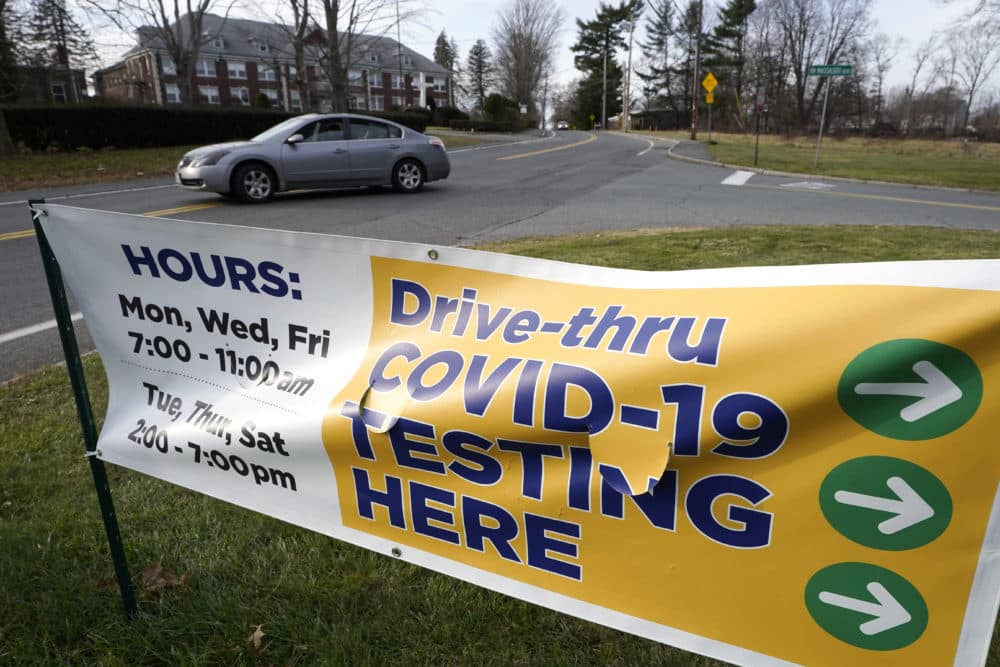Advertisement
'Crucial' weeks ahead for COVID in Mass. as experts track Europe's BA.2 spike

Epidemiologists and doctors in Massachusetts are watching carefully as COVID cases spike in parts of Europe. In the United Kingdom, Greece, France, Germany and several other countries, cases have risen sharply in the past two weeks.
“If COVID history has taught us anything, we should be looking to the UK and Europe as a signal of what to expect locally,” said Bronwyn MacInnis, director of pathogen genomic surveillance at the Broad Institute of MIT and Harvard.
The subvariant behind most of the European cases is called BA.2 and considered a more-transmissible cousin of omicron. In the U.S. overall, BA.2 accounts for a little more than 23% of cases, according to the Centers for Disease Control and Prevention's data from March 12. However, in Massachusetts, modeling from MacInnis’s team suggests that, as of March 17, more than half of the cases in the state are from the BA.2 subvariant.
“I think the next few weeks will be critical,” she said. “We're typically about two or three weeks behind [spikes in Europe].”
However, MacInnis cautioned, it’s too soon to say with certainty whether the commonwealth will follow a similar path to much of Europe.
“I threw my crystal ball out the window with omicron," she said. "So I really hesitate to predict much at this point.”
Robert Horsburgh, an infectious disease physician and a professor of epidemiology at Boston University, called the situation in Europe “worrisome,” but it’s not changing his behavior.
“I'm not going to start putting my mask back on because of what's happening in Europe because I'm not in Europe,” he said. “If I were in Europe, I'd put my mask back on.”
Local COVID levels are way down since the omicron surge. In the past three to four weeks, case counts in Massachusetts, as well as the wastewater levels in the Boston-area, have stopped their dramatic decline and, generally, begun to plateau.
Exactly what’s causing the latest uptick in Europe is not yet known.
Richard Ellison, an infectious disease physician and professor at the UMass Chan Medical School in Worcester, said it is likely a combination of several factors, including the fact that people are taking off their masks and letting up on other COVID precautions, the highly-contagious BA.2 subvariant and waning immunity from vaccines and boosters.
Ellison said, personally, he'll be keeping a close eye on the numbers in Massachusetts and keeping up his precautions against the virus until it becomes clear whether the commonwealth will follow the pattern in western Europe.
"It's a very good time to be cautious right now," Ellison said.
